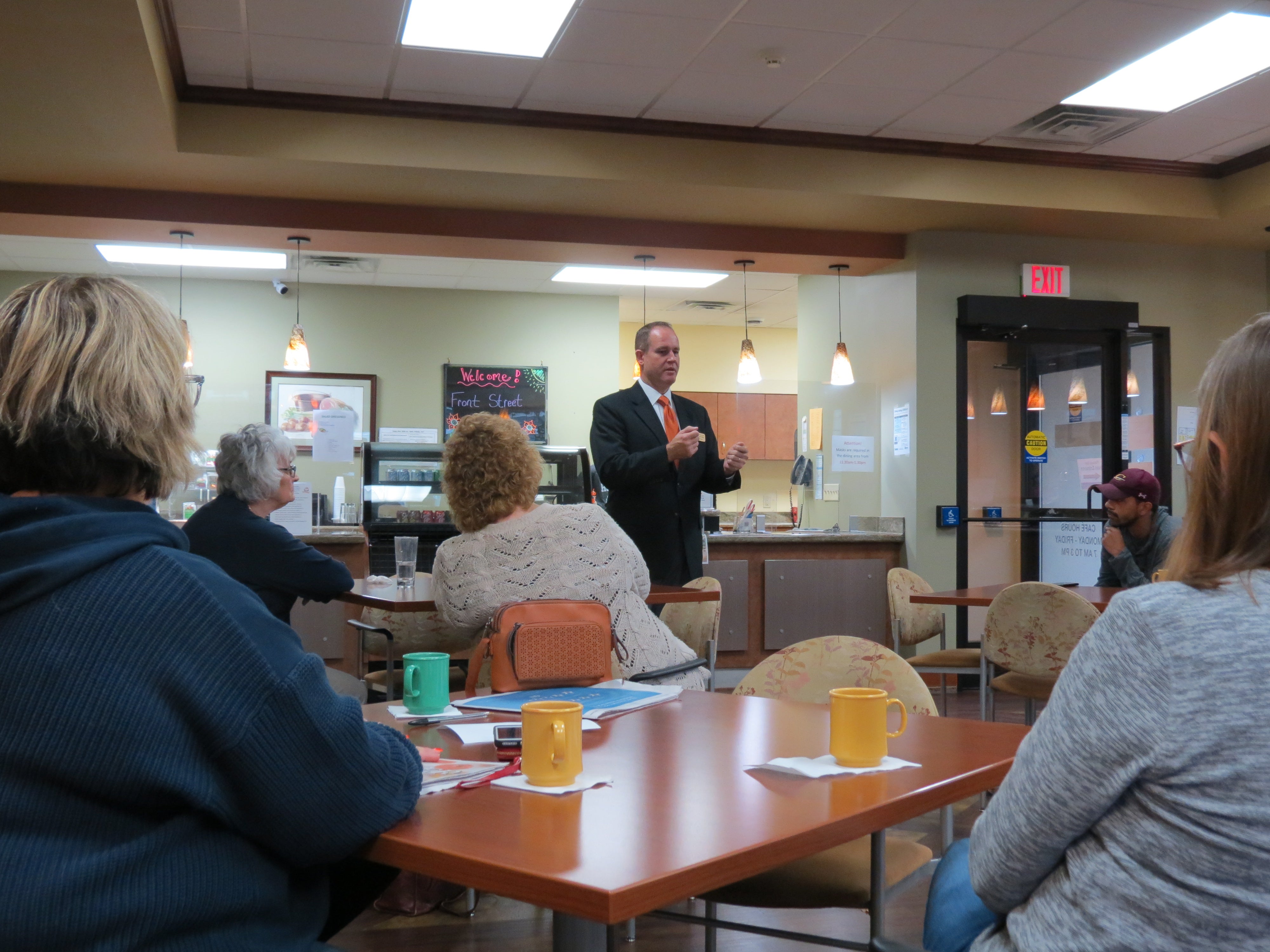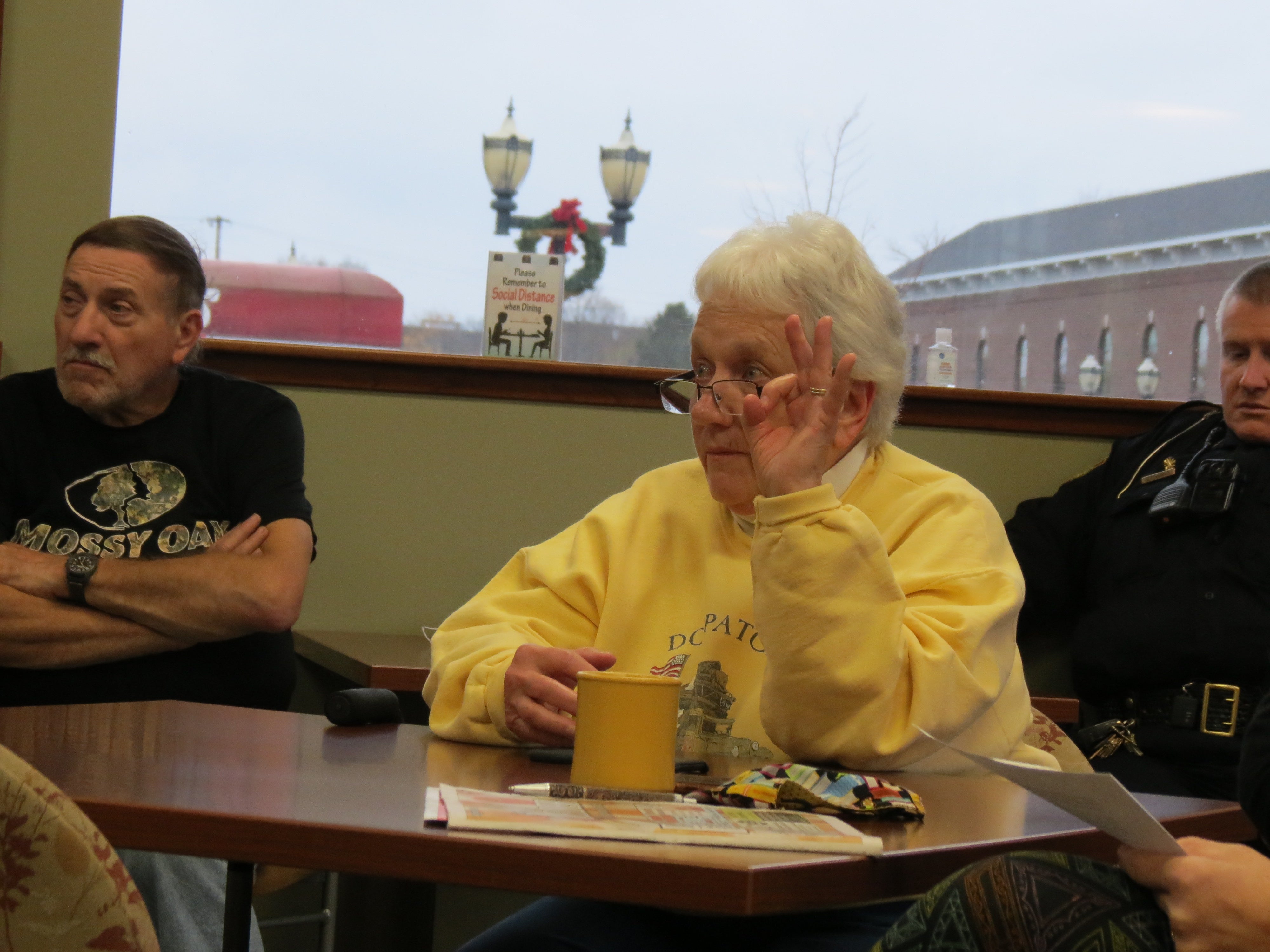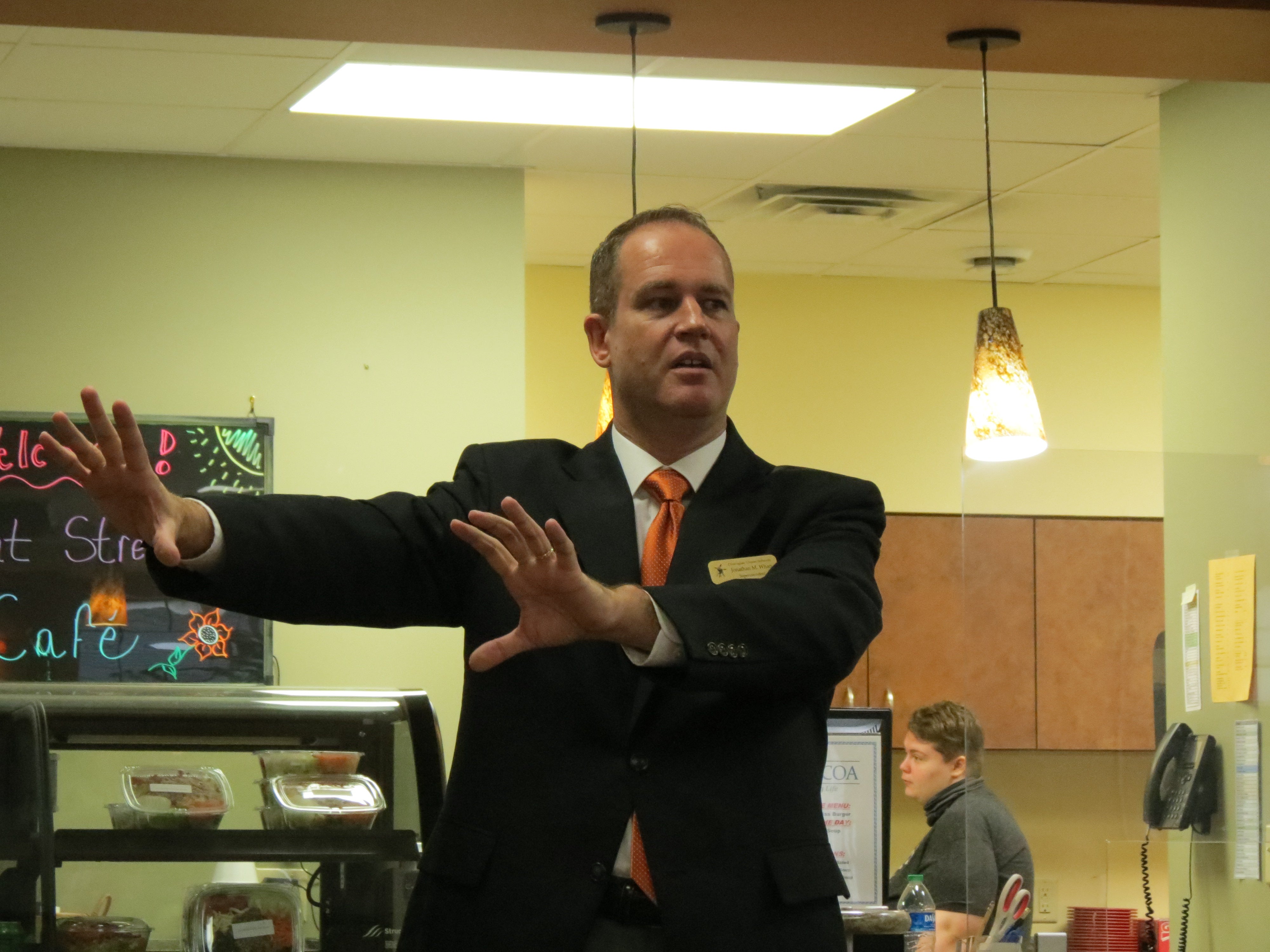DUS superintendent talks teacher contracts, pandemic during Q&A
Published 10:54 pm Friday, November 19, 2021
|
Getting your Trinity Audio player ready...
|
DOWAGIAC – Teachers, parents, students and community members had the opportunity to voice their concerns to the board as a whole at Monday’s Dowagiac School Board meeting. For some, the frustration expressed during the meeting only led to more questions.
Those residents were afforded the opportunity Wednesday to get some answers directly from one member of the board.
November’s “Spill the Beans” session at the Cass County Council on Aging, 227 S. Front St., featured Dowagiac Union Schools Superintendent Jonathan Whan. He spoke about how the COVID-19 pandemic has affected school operations after 20 months, then hosted a lengthy question-and-answer session with community members. He was pressed on topics ranging from vaccinations to teacher contract negotiations, and the following are a selection of his responses.
On managing an ever-changing pandemic:
“I have never in my life said as often as I did then – and at times still saying now – ‘I don’t know, I’m unsure, I’ll have to look into that’ and I know that the teachers were going to the exact same thing. It literally felt like every day there was a change coming to us from the federal government or the state about what to do differently, what you can can’t do, different suggestions, different requirements and the flexibility required that our staff put forth was just incredible. It really was. It’s amazing. There’s still, incorporating, still having to work with that. Now, I’ve started to hear the phrase “We’re coming out of the pandemic,” which I think we all are looking forward that day we can say we truly are, but we’re still dealing with some of those flexibility issues.”
On returning to in-person learning:
“It was a warm feeling to see the kids being excited to be back seeing their friends, having that interaction with friends, having the interaction with their teachers who they care about and they enjoy learning from.”
On encouraging vaccinations within the district:
“When we receive information from the health department, our school nurse shares this information when there are other vaccine clinics, like booster clinics or new first-time clinics, we share that with staff and we let parents know that the option is for them. … It’s a choice that they have to make individually. So, we’re sharing with them where the clinics are. We’re not telling them to get vaccinated.”
On reasons for teachers leaving:
“We had multiple reasons. I’m going to just going to put this one right out front – yes, we had some staff that were not happy … I’m not going to hide that. But there were also some unique situations. So, for example, in the state of Michigan throughout the pandemic, the weeks, the number of teachers that resigned last year was almost 40 percent higher. … Our universities have not been producing as many teachers. Central Michigan, Eastern [Michigan], Western [Michigan]. … The big normal teacher schools are not producing as many teachers as they had. And so, you have an influx of retirements, and you have less opportunity for selection, so it’s kind of the perfect storm.”
“There were some teachers that were not happy when they left. We also had, I think, four or five retirements ourselves. We had a couple of people who had new opportunities to pursue. … We had a couple staff members that, through the evaluation process, it was mutually agreed upon. And we did have some folks who chose to go into the private sector.”
On current teacher contracts:
“The old contract is still in place, okay, compensation is still there. Insurance is still there, the school responsibility, the legal responsibility for retirement contribution is still there. The working conditions are still there. … Technically, the contract ended … but the conditions are still there until the next one is approved.”
On if the teachers are currently working without a raise:
“That is correct. By law. By state law. Until the next agreed upon contract, there can be no increased expenditures for the district towards the teacher’s union. Okay, that’s law.”
On contract negotiations:
“So, at the table, we reached what we refer to the tentative agreement. At that point, the process moves back to the union membership as a whole. All members of the of the union, they gather, and it is my understanding that the union is supposed to share all the information. … There are so many days of sharing of information and then they have a voting window, that’s what they have. At the end of that voting window, we were informed that the membership voted the TA down.”
“The board is still committed to the idea of the negotiation process. It’s not like you draw a line. It’s not like we said ‘no, we don’t want to talk to you anymore. … I have been dealing with negotiations of for probably 17 in my 24 years [in administration.] The negotiation process here has been, I refer to it as goodwill. Good faith, good conversation. I don’t think that are any of our sessions to have been negative in regards to professionalism, or respect back and forth, not at all. Which I think is a testament to both the boards team, our team and the teachers team.”
On the school board’s decision to not be involved in negotiations:
“The board has decided that that’s not what they want to do. … The board as a whole’s decision is that they’re not going to be at the table.”
On his communications with the board about negotiations:
“Every proposal that we’ve received our board has seen. … I actually give them the written proposal. … and it’s not just me, our finance director is there. If the DEA – that’s the Dowagiac Education Association – if they give us a written proposal that says A,B,C and D, they actually give it to us on paper. I copy that sheet of paper and I give it to the board, the board actually sees everything.”








